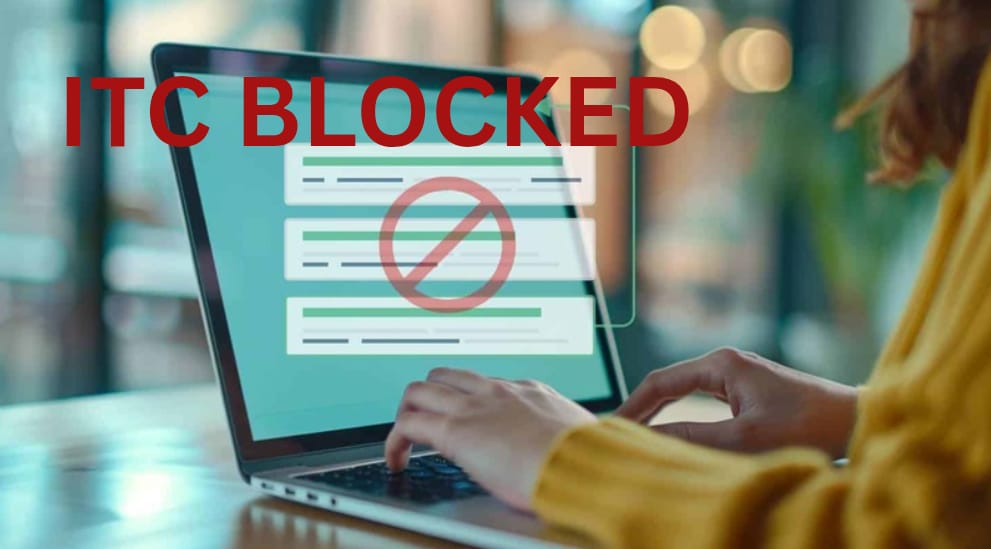
Patna High Court Upholds ITC Blocking Under Rule 86A: Authorities Must Record ‘Reasons to Believe’
By Aaerm Law Associates | May 22, 2025
🔍 Introduction
The Patna High Court has delivered a pivotal judgment in Graphic Trades Pvt. Ltd. v. State of Bihar and Others [C.W.J.C. No. 4506 of 2025, dated April 23, 2025]. The court upheld the decision to block Input Tax Credit (ITC) under Rule 86A of the Bihar Goods and Services Tax (BGST) Rules, 2017. Importantly, the judgment reiterates the need for tax authorities to record “reasons to believe” based on objective evidence when exercising such powers.
📝 Case Background
M/s. Graphic Trades Pvt. Ltd., an IT solutions provider, was accused of availing ITC from a non-existent supplier—M/s. TDML Services Pvt. Ltd. During a search, TDML was found to be non-operational at its registered principal place of business.
Following this discovery, the tax authorities blocked Graphic Trades’ ITC on February 7, 2025, under Rule 86A of the BGST Rules. The company claimed the action was mechanical and lacked independent investigation, asserting that authorities failed to properly record their “reasons to believe.”
⚖️ Legal Framework: What Does Rule 86A Say?
Rule 86A empowers the Commissioner or an officer not below the rank of Assistant Commissioner to block ITC in a taxpayer’s Electronic Credit Ledger, provided they have reason to believe that such credit:
- Was fraudulently availed, or
- Is otherwise ineligible.
However, this power must be backed by documented evidence, and not exercised arbitrarily. The CBEC Circular No. 20/16/05/2021 – GST/1552 dated November 2, 2021, outlines detailed guidelines for invoking Rule 86A, including an option for reconsideration under Para 3.4.
🧑⚖️ Court’s Analysis and Rationale
The High Court upheld the ITC block, citing that authorities had ample supporting material, including:
- TDML’s non-existence at the reported business address
- Discrepancies in Form GSTR-1 and auto-populated GSTR-2A
- Allegations of fake invoice trading
The court referenced the Bombay High Court’s decision in Dee Vee Projects Ltd. v. Government of Maharashtra, which stated that Rule 86A must be applied judiciously and never casually.
Additionally, the court acknowledged that the blocking of ITC is interim in nature. Therefore, affected taxpayers, like the petitioner, can request reconsideration via the mechanism outlined in the guidelines.
📌 Key Observations by the Court
- Authorities did not act arbitrarily; they assessed valid reports before passing the blocking order.
- The petitioner still has a remedy through Para 3.4 of the CBEC guidelines.
- No breach of natural justice occurred since the ITC block is temporary and subject to review.
The court emphasized that this legal mechanism is not meant to be punitive, but preventive, especially in cases involving fraud or misrepresentation.
💡 Implications for Taxpayers and Businesses
This judgment carries several important takeaways:
✅ Due Diligence Required: Businesses must verify the legitimacy of their suppliers.
✅ Avoid Fake Invoices: Engaging with shell companies can lead to blocked ITC and legal scrutiny.
✅ Document Everything: Maintain a clean audit trail and respond promptly to tax notices.
✅ Seek Review: If your ITC is blocked, promptly invoke Para 3.4 of the guidelines and request reconsideration.
🔄 Comparison with Other Rulings
The High Court’s approach aligns with past decisions:
- 🏛️ Chhabil Dass Agarwal v. CIT: Reaffirmed that courts avoid intervention when alternative statutory remedies exist.
- 🏛️ M/s. Godrej Sara Lee Ltd.: Clarified the difference between maintainability and entertainability of writ petitions.
- 🏛️ Assistant Commissioner of State Tax v. Commercial Steel Ltd.: Emphasized that courts should not bypass legislative mechanisms unless absolutely necessary.
🗣️ Conclusion
The Patna High Court’s ruling upholds the legality and procedural fairness of blocking ITC under Rule 86A when justified by credible evidence. It sends a clear message: tax authorities must act on facts, not assumptions. However, businesses have recourse and should use available channels to contest or clarify such decisions.
For law-abiding taxpayers, the ruling offers clarity, not concern—ensuring the system penalizes fraud, not compliance.
